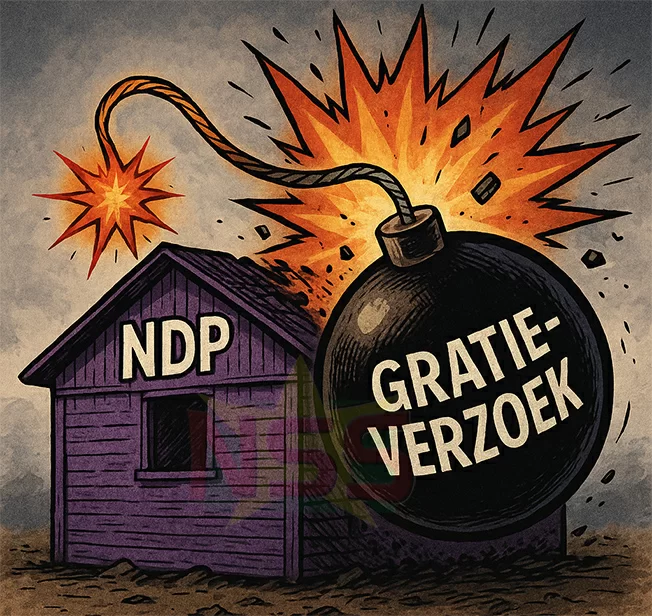The recent call by Ramon Abrahams, Deputy Chairman of the National Democratic Party (NDP), for pardons for four individuals convicted in the December Murders has reignited old wounds and risks triggering an internal crisis within the party. Initially perceived as an act of loyalty to former leader Desi Bouterse, the move now threatens to weaken President Jennifer Simons politically and destabilize the fragile equilibrium of Suriname. During a commemoration event for Bouterse’s 80th birthday on October 13, Abrahams urged clemency for three imprisoned convicts and one fugitive, Iwan Dijksteel, who remains at large. Bouterse’s lawyer, Irvin Kanhai, added weight to the appeal by announcing he had submitted a pardon request to the President’s Cabinet on behalf of the convicts. President Simons, present at the event, appeared visibly surprised and stated she had not seen the request, leaving her unable to take a stance. The speech drew immediate backlash, both from society and within the NDP, as it reopened the unhealed trauma of the December Murders, a national tragedy. Critics labeled Abrahams’ remarks as ill-timed and politically tone-deaf, with some suggesting the move was poorly coordinated with Simons. The incident has exposed a growing rift within the NDP between a hardline faction loyal to Bouterse and a moderate group aligned with Simons, who seeks to restore the party’s image and maintain the ruling coalition. Simons now faces a delicate balancing act: as party leader, she cannot ignore the wishes of her colleagues, but as president, she must consider the sentiments of her coalition partners and the public. Coalition members like the NPS and A-20 are unlikely to support pardons for the December Murders convicts, given the symbolic weight of such a decision. While humanitarian arguments for clemency exist—three of the convicts are elderly and in poor health—the broader societal context, including the unresolved grief of victims’ families, complicates the matter. The situation is further muddied by conflicting reports about the legitimacy of the pardon request, with the convicts denying they authorized Kanhai to act on their behalf. This raises questions about internal power dynamics and whether the pardon issue is being weaponized in a factional struggle. Simons’ leadership is being openly tested, and some party members appear willing to undermine her if she does not align with their agenda. The irony is that Bouterse once warned that the NDP’s greatest threat would come from within—a statement that now rings prophetic. As Suriname grapples with significant economic challenges, including mounting debt and hopes for future oil revenues, the country’s political stability is once again jeopardized by internal strife and unresolved historical grievances. What Suriname needs is calm, clarity, and leaders who use the past as a lesson for the future, not as a weapon. Abrahams’ call, however, serves as a stark reminder of how thin the veneer of reconciliation remains.
Column: Ondoordacht gratieverzoek ontsteekt kruitvat in NDP-barak en bedreigt politieke stabiliteit
